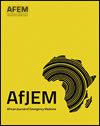探讨尼日利亚创伤外科医生对创伤护理的看法:定性研究
IF 1.2
4区 医学
Q3 EMERGENCY MEDICINE
引用次数: 0
摘要
在尼日利亚,由于道路交通事故和暴力造成的高伤害率和死亡率,创伤护理面临挑战。改善工作正在进行中,但在服务可得性、培训和协调方面仍然存在差距,因此需要采取循证干预措施。目的评估尼日利亚的创伤护理实践,重点关注从业者对培训、资源和护理质量的看法,为政策和实践的改进提供信息。方法对尼日利亚7名创伤外科医生进行探索性定性研究,采用半结构化访谈和解释性描述分析方法,遵循SRQR标准。结果对7名尼日利亚创伤外科医生的访谈分析表明,尼日利亚的创伤护理系统因交通相关伤害的高发生率而不堪重负。尽管病例量各不相同,从每月20例到每周65例,但常见的挑战包括延误护理,导致感染和伤口愈合不一致等并发症。外科医生注意到积极的工作人员和亚专业化的优势,但强调了院前护理不发达、财政限制和资源短缺等障碍,这些障碍阻碍了有效的创伤管理和结果。结论通过政策改革、优化资源配置和加强培训,尼日利亚的创伤护理是可以实现的。建议系统的数据收集和国家创伤护理方案,以改善患者的结果和指导未来的研究和政策制定。本文章由计算机程序翻译,如有差异,请以英文原文为准。
Exploring trauma surgeons' views on trauma care in Nigeria: A qualitative study
Background
In Nigeria, trauma care faces challenges due to high injury and death rates from road traffic accidents and violence. Improvements are underway, but gaps in service availability, training, and coordination persist, necessitating evidence-based interventions.
Purpose
To evaluate trauma care practices in Nigeria, focusing on practitioners' perceptions of training, resources, and care quality to inform policy and practice enhancements.
Methods
An exploratory qualitative study was conducted with seven trauma surgeons across Nigeria, using semi-structured interviews and an Interpretive Description analysis approach, adhering to SRQR standards.
Results
Analysis of interviews with seven Nigerian trauma surgeons highlighted a trauma care system burdened by high incidences of traffic-related injuries. Despite varying caseloads—from 20 cases per month to 65 weekly—common challenges included delayed care, leading to complications like infection and misaligned wound healing. Surgeons noted strengths in motivated staff and sub-specialization but stressed barriers such as underdeveloped prehospital care, financial constraints, and resource shortages, which hindered effective trauma management and outcomes.
Conclusions
Effective trauma care in Nigeria is crucial and achievable through policy reforms, better resource distribution, and enhanced training. Systematic data collection and a national trauma care protocol are recommended to improve patient outcomes and guide future research and policymaking.
求助全文
通过发布文献求助,成功后即可免费获取论文全文。
去求助
来源期刊

African Journal of Emergency Medicine
EMERGENCY MEDICINE-
CiteScore
2.40
自引率
7.70%
发文量
78
审稿时长
85 days
 求助内容:
求助内容: 应助结果提醒方式:
应助结果提醒方式:


